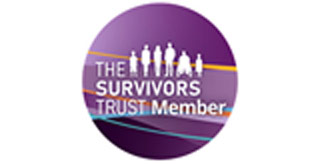This section is to support the understanding of legal definition of words, this does not diminish an experience of any survivor.
The crown prosecution service defines Rape, Sexual Assault and Assault by Penetration as the following.
A rape is when a person uses their penis without consent to penetrate the vagina, mouth, or anus of another person. Legally, a person without a penis cannot commit rape, but a female may be guilty of rape if they assist a male perpetrator in an attack.
Sexual assault is where one person intentionally touches another person sexually without their consent. The touching can be done with any part of the body or with an object.
Assault by penetration is where a person intentionally penetrates the vagina or anus of another person with any part of their body or an object without that person’s consent. The penetration must be sexual.
What could someone do if they have been raped, sexually assaulted, or assaulted by penetration?
There are services that can help if you have or someone you know has been sexually assaulted, raped or abused. You do not have to report the assault to the police if you don’t want to. You may need time to think about what has happened to you.
However, consider getting medical help as soon as possible for any injuries and because you may be at risk of pregnancy or sexually transmitted infections (STIs). If you want the crime to be investigated, the sooner a forensic medical examination takes place, the better.
Try not to wash or change your clothes immediately after a sexual assault. This may destroy forensic evidence that could be important if you decide to report the assault to the police.
Sexual assault referral centres (SARCs) offer medical, practical, and emotional support to anyone who has been raped, sexually assaulted, or abused. SARCs have specially trained doctors, nurses, and support workers to care for you.
You can get help from a SARC by booking an appointment with your nearest one, which you can find here.
Supporting a victim of sexual assault
Advice for any supporting someone who is a survivor who has been sexually assaulted or abused includes:
- Believe what they’re saying and tell them this.
- Listen to the person, but don’t ask for details of the assault. Don’t ask them why they didn’t stop it. This can make them feel as though you blame them.
- Offer practical support, such as asking them if they would like you to go with them to appointments.
- Respect their decisions – for example, whether they want to report the assault to the police.
- Bear in mind they might not want to be touched. Even a hug might upset them, so ask first. If you’re in a sexual relationship with them, be aware that sex might be frightening, and don’t put pressure on them to have sex.
- Don’t tell them to forget about the assault. It will take time for them to deal with their feelings and emotions. You can help by listening and being patient.
If you or someone you are supporting decides to report the assault to the police
If you do decide to report it to the police, a police officer specially trained in supporting victims of sexual assault will talk to you and help to make sure you understand what’s going on at each stage.
The police will investigate the assault. You will be offered a forensic medical examination and will be asked to make a statement about what happened (what you say is written down, which you check and sign). The police will pass their findings, including the forensic report, to the Crown Prosecution Service, who will decide whether the case should go to trial.
To find out more about what’s involved in an investigation and trial, you can:
- Talk to an ISVA, supporting police officer or charity (you can search via the directory here)
- Find out more on UK about going to court as a victim or witness.
- The Survivors Trust has collated some resources around reporting that you can find here, some resources might be aimed at women but that doesn’t mean the principles don’t apply to men.























